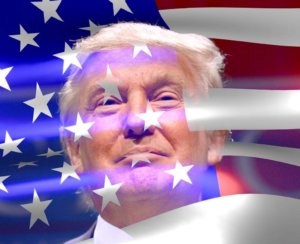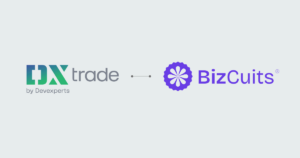“Dodd-Frank is a disaster” says Donald Trump as relaxation begins; Full steam ahead for US FX industry
Donald Trump has begun his relaxation of US financial markets regulations, ensuring that the US remains a top quality jurisdiction with a well deserved high level reputation, yet friendly to bona fide businesses wishing to conduct their operations in North America without being crippled by bureaucracy.

America the brave, America the free. An absolutely fantastic country and one of the world’s most refined and advanced business environments.
A nation that dealt spectacularly with the rebuilding of its financial markets economy – which continues to lead the world – after the 2008 financial crisis and credit crunch. Productivity, national debt, business-friendliness, prosperity – all back to normal whilst Europe flounders under the socialist millstone around its neck and cannot modernize.
America’s foreclosures that occurred as a result of defaults on sub-prime loans and corporate collapses that included major investment bank and FX interbank dealer Lehman Brothers, as well as MF Global and PFGBest led to a fully comprehensive overhaul of regulatory structures across exchanges, over-the-counter businesses and banks.
The Dodd-Frank Wall Street Reform Act, sworn into US law by former president Barack Obama, was a draconian revamp of the entire market infrastructure that underpinned the giants of New York and Chicago, welcomed by the domestic companies that today dominate North America’s FX industry, and reviled by the overseas firms that just could not cut it in the United States.
On November 12, 2016, FinanceFeeds reported that then President elect Donald Trump would set about relaxing some of the rulings in the Dodd-Frank Act, the barriers of doing business as an FX brokerage having become about to be abolished, as the Transition Team within the business-orientated Grand Old Party vowed to dismantle the Dodd-Frank Act and make a litany of changes to overturn the veto that was imposed by Barack Obama.
On Friday last week, Donald Trump took his first step in attempting to decrease the ferocity of US financial services regulations, having signed an Executive Order to review the regulations from the ground up, responding to market participants who consider the Dodd-Frank Act to be too restrictive.
“The Dodd-Frank Act is a disaster and we are going to be doing a big number on it” said Donald Trump publicly last week.
Mr Trump made it a campaign pledge to repeal and replace the Dodd-Frank act, which also created the Consumer Financial Protection Bureau (CFPB).
In line with the United States’ highly well organized business environment and worldwide renowned regard for consumer protection, the US government continues to make sure that financial services companies behave appropriately and treat customers fairly.
News that a review was imminent sent the shares of some of the world’s largest interbank FX dealers higher on Wall Street and on the main stock markets in Europe. Goldman Sachs and JP Morgan Chase rose 4% and 3% respectively.
“The banks are going to be able to price products more efficiently and more effectively to consumers,” Gary Cohn, an adviser to Mr Trump and a former Goldman Sachs executive stated in the Wall Street Journal.
Let’s take a look at the obstacles:
– $20 million net capital set aside for regulatory purposes.
– No acceptance of clients who are not US residents or citizens.
– No overseas firms can solicit for business in the United States
– The imposition of the Volcker Rule which prohibits proprietary trading in any capacity outside OTC derivatives.
The Volcker Rule was first publicly endorsed by President Obama on January 21, 2010. The proposal specifically prohibits a bank or institution that owns a bank from engaging in proprietary trading, and from owning or investing in a hedge fund or private equity fund, and also limits the liabilities that the largest banks can hold. This is one of the Republican Party’s major priorities when looking at abolishing the Dodd-Frank Act.
Under discussion is the possibility of restrictions on the way market-making activities are compensated; the Dodd-Frank Act stipulates that traders would be paid on the basis of the spread of the transactions rather than any profit that the trader made for the client. This may be also abolished.
On January 21, 2010, under the same initiative, President Obama announced his intention to end the mentality of “Too big to fail.”
In early November last year, the transition team’s blueprint that was published on the president’s website stated that the Trump team “will be working to dismantle the Dodd-Frank Act and replace it with new policies to encourage economic growth and job creation.”
FinanceFeeds maintains that businesses in America are run by true professionals who are continually striving to provide increasingly high quality trading environments. FXCM, GAIN Capital, OANDA Corporation and Interactive Brokers are widely recognized to be of very high quality and not once have any of them made any negative discourse toward the regulatory structure.
Many non-US firms that exited the market were unable to maintain the standards required, however now that this ‘clean up’ has occurred and the US firms dominate, relaxing the Dodd-Frank Act would in our opinion not diminish the quality of America’s business environment in the electronic trading sector, but assist continued sustainability and allow access to overseas firms that wish to uphold the good standard and participate in such a vital market.
The president-elect has enlisted the services of Paul Atkins, a former Republican member of the Securities and Exchange Commission and longtime Dodd-Frank critic, to recommend policies on financial regulation.
Any removal of draconian restrictions on FX trading in the US will likely be welcome, with the best aspect here being the chance for the US to shine as a bastion of high quality as the National Futures Association and Commodity Futures Trading Commission will not tolerate malpractice and have massive restitution and prosecution powers against firms that do wrong, however if the Dodd-Frank Act is completely overturned at this stage, it would mean a genuine free market for those wishing to make the most of an astute audience which benefits from the highest level of consumer protection in the world, without the overbearing government bureaucracy that caused well-meaning and high quality firms to exit the country in the first place.
During the next year, it will be of great interest to note the extent to which the Dodd-Frank Wall Street Reform Act will be rescinded and to how many firms can benefit from once again re-establishing presence in one of the world’s most well organized and high quality regions.









